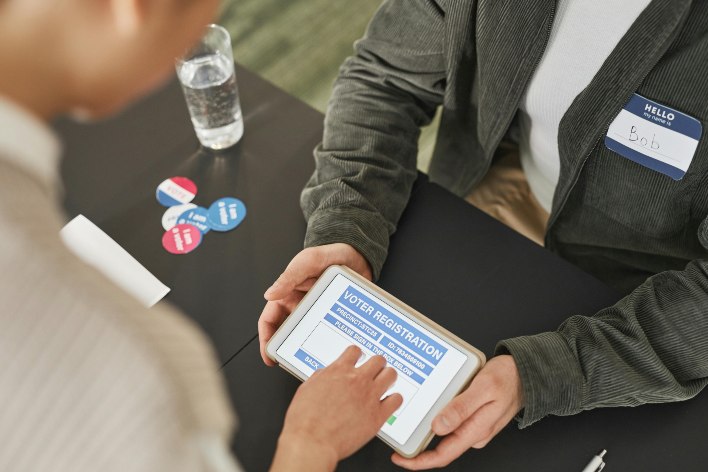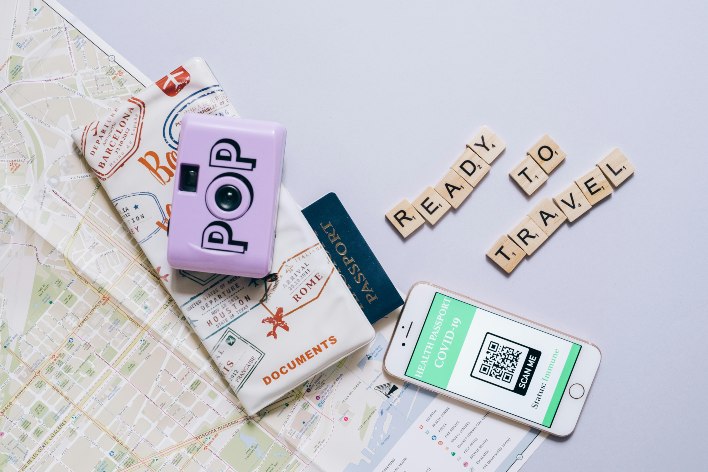The Role of Digital Citizenship in Shaping Responsible Online Behavior

Today, everything is connected through the internet. Be it playing games, chatting with friends, or even finishing homework, the internet has become a common place wherein everybody is linked. But great power comes with great responsibility! Such an idea is referred to as digital citizenship. So, what is digital citizenship, and why is it important? Understanding this aspect of responsible online behavior requires us to delve deeper into meaning and definition.
What is Digital Citizenship
Digital citizenship meaning is the norms, practices, and behaviors that guide how we responsibly and ethically use technology. As in the physical world, where we simply follow the rules and respect others, digital citizenship is using the internet safely, respectfully, and thoughtfully. This includes how one would ensure the protection of privacy, considering the impact of one's words and actions on others, and using digital tools for the greater good. Bottom line, a digital citizen is a responsible operator in the digital world, much like a responsible community member, ensuring that activity online is ethical, respectful, and safe for all.
What Do You Expect While Practicing Digital Citizenship?
1. Online Safety: You'll be taught to protect your privacy and keep yourself safe from cyber dangers, scams, and online harassment.
2. Responsible Communication: Digital citizenship will also help in responsible communication that does not include cyberbullying and instead reduces conflicts.
3. Responsible Content Sharing: You will understand the impact of what you are bringing to the web. This will promote responsible information sharing and positive contributions to the digital world.
4. Critical Thinking Skills: Online information needs evaluation. This means that it encourages someone to judge everything brought on the internet, distinguishing between reliable and unreliable sources, which helps decide who they can trust online.
5. Better Digital Reputation: You will build up a good online reputation, and you know how to intermingle with others rightly; both personally and professionally.
6. Global Awareness: Digital citizenship makes you aware of various perspectives and cultures that make you respect and welcome differences while staying within an online community.
5 Key Points for Safe and Responsible Digital Citizenship
-
Protect Your Privacy
-
Respect Others
-
Think Before You Post
-
Verify Information
-
Practice Digital Etiquette
1. Protect Your Privacy
-
Use strong, unique passwords to protect all your online accounts so hackers can't access your accounts.
-
Update your privacy settings on all sites that you visit more often to know who may be able to view your personal information
-
This includes never sharing any personal info on public websites, such as home address, financial information, or personal identifiers
2. Respect Others
-
Do the same thing online, being gentle and considerate to others there
-
Never cyberbully or troll; do not post hurtful things.
-
Remember that what you say and do online can even emotionally hurt others.
3. Think Before You Post
-
Pay attention to what you publish or share-it may be there forever
-
Ask yourself if it's respectful and appropriate for all audiences.
-
Keep in mind, when it's online, it can be quite hard to take it back offline again, and does indeed greatly impact your reputation.
4. Verify Information End
-
Always verify a source of information you come across with an easy fact-check, not spreading misinformation. Cross-check news and articles from multiple reliable sources before believing or sharing.
-
Be responsible in terms of the damage carried out by sharing misleading or false information.
5. Practice Digital Good Manners
-
In communicating online, be observant of etiquette, and do not use offensive language at all, especially aggressive or rude language. Respect other people's time and do not spam their inboxes with unwanted messages/notifications.
-
Also, always be mindful of your online etiquette to respect others' privacy and boundaries, of course.

The Seven Elements of Digital Citizenship
To get a better understanding of how one can be a good digital citizen, let's first take a glance at the seven basic elements of digital citizenship:
1. Digital Access
Digital access refers to being able to access the tools of technology and the internet and not everybody is provided with equal access. Assisting less fortunate people in their call for advocacy for digital access is one kind of aid that may help them access the resources they need to connect and learn online.
2. Digital Commerce
E-commerce evolves with knowledge of the safe sale and purchase of goods over the Internet. A good digital citizen makes sure that he or she learns how to safely shop online and how to securely keep financial details.
3. Digital Communication
This involves acknowledging the need to learn how to communicate effectively on the web. This involves knowing when to use which modes of communication whether e-mail, instant messaging, or even how tone could be wrong perceived in written words.
4. Digital Literacy
Digital literacy refers to the skills that entail the effective and proper seeking, evaluation, and use of information online. It simply means knowing how to seek information, identify reliable sources, and understand what you are consuming.
5. Digital Etiquette
Etiquette in the digital age is a set of rules and regulations that guide proper behavior in the online world. It deals with being kind and considerate while communicating and understanding the impact your words and actions could be having on others.
6. Digital Law
Knowledge of cyber law helps and supports a person in understanding the online world. It involves knowledge about copyright laws, respect for intellectual property, and serious implications associated with illegal online behavior.
7. Digital Rights and Responsibilities
Digital rights and responsibilities involve knowing what you can or cannot do online and what is rightfully expected of you as a user. To this end, it encompasses your right to privacy and the freedom of speech; alongside that, you have some specific duties of being a respectful and lawful citizen.
How To Be A Responsible Digital Citizen
Having cleared the elements of digital citizenship, let's now go to how you can become a responsible digital citizen:

1. Educate Yourself
First, learn about digital citizenship. Most schools and organizations offer you resources and programs as ways to understand responsible behavior online.
2. Be a Critical Thinker
Be critical when you are given any piece of information you see online. Ask yourself the following: Does the source have credibility? Who produced this content? Why was this content created? Being a critical thinker helps you to learn your way around the Internet and its use of information.
3. Be Aware of Your Digital Footprint
Pay attention to the fact that every step you make online leaves a trace in the name of your digital footprint. Be attentive to the information that you are sharing and think beforehand about how it may influence your future life.
4. Act Positively
Maintain your relations on the web with others in kindness and respect. Support friends and peers - and you would be joining positive conversations online.
5. Report Inappropriate Behavior
Report cyberbullying or other inappropriate behavior at once. Speaking up helps create an online environment that is safe for everyone.
6. Practice Safe Browsing
Use strong passwords, do not give out any of your personal information, and do not hastily click on a link that you don't know. Protecting both your info and apparatus, safe browsing refers to both your information and equipment.
7. Educate Others
Share with friends and family what you have learned about digital citizenship. Digital citizen education is like creating a responsible online community by educating others about responsible digital citizenship.

Effects of Digital Citizenship
Digital citizenship, once understood and applied, will result in lifelong effects. Here's how it changes our online world:
1. Respectful Online Community
Here, if all behave positively in the virtual world then it becomes a safe and welcoming place for everyone. Freedom of expression as well as collaborative interaction are also emphasized.
2. Liberating Individuals
The rights and responsibilities empower an individual to master his or her online presence. One coming to know them will engage more intensely in cyberspace.
3. Entrenches Lifelong Learning
The teaching of the digital citizen makes a person a lifelong learner. As technology is dynamic, an ideal citizen of the digital world needs to be equipped with new trends as well as best practices.
4. Creates Global Consciousness
Digital citizenship can bring people from all over the world closer together. In cyberspace, awareness of other cultures and perspectives offers a door for global consciousness and sensitivity in a world that has become very interconnected.

Conclusion
In a nutshell, digital citizenship holds an important place in the shaping of responsible online behavior. Understanding its meaning, definition, and examples are the tools that can create a positive experience for the greater online community. So the next time we log on to the web, we commit ourselves to online behavior respectful, informed, and engaged. Thus doing so, we can also create a safe online world to support everyone.
So, the next time you go online, remember that actions speak louder, and being a good digital citizen is not just for someone else, it is for you.
MCQs
1. Which of the following best describes the term digital citizenship?
-
A. The use of technology solely for entertainment purposes.
-
B. The responsible and ethical use of technology by individuals.
-
C. Engaging in online shopping and social media.
-
D. Accessing the internet without restrictions.
Correct Answer: B. The responsible and ethical use of technology by individuals.
2. Which of the following is a key principle of digital citizenship?
-
A. Sharing all personal information publicly.
-
B. Practicing respectful communication and digital etiquette.
-
C. Using the internet solely for personal gain.
-
D. Ignoring online safety protocols.
Correct Answer: B. Practicing respectful communication and digital etiquette.
3. Why is digital literacy important for responsible digital citizenship?
-
A. It helps individuals improve their typing speed.
-
B. It enables individuals to create misleading content.
-
C. It empowers individuals to critically assess online information.
-
D. It promotes unrestricted sharing of any online content.
Correct Answer: C. It empowers individuals to critically assess online information.
4. Which of the following actions reflects responsible online behavior as a digital citizen?
-
A. Posting rumors without verifying information.
-
B. Protecting personal data and respecting others' privacy.
-
C. Avoiding any online interaction with others.
-
D. Ignoring terms of service agreements on websites.
Correct Answer: B. Protecting personal data and respecting others' privacy.
Discover more exciting ways to make learning fun—explore our site for engaging resources and activities today!
RELATED BLOGS
The Importance of Teaching Financial Literacy Through Practical Applications
The Role of Innovation in Addressing Educational Inequities
Exposure to An Early Career: Higher Education Options Are Important
Other Related section
NCERT Solutions | Sample Papers | CBSE SYLLABUS| Calculators | Converters | Stories For Kids | Poems for kids | Practice Worksheets | Formulas I Blogs
Admissions Open for
CBSE Schools In Popular Cities
- CBSE Schools in Bangalore
- CBSE Schools in Mumbai
- CBSE Schools in Pune
- CBSE Schools in Hyderabad
- CBSE Schools in Chennai
- CBSE Schools in Gurgaon
- CBSE Schools in Kolkata
- CBSE Schools in Indore
- CBSE Schools in Sonipat
- CBSE Schools in Delhi
- CBSE Schools in Rohtak
- CBSE Schools in Bhopal
- CBSE Schools in Aurangabad
- CBSE Schools in Jabalpur
- CBSE Schools in Jaipur
- CBSE Schools in Jodhpur
- CBSE Schools in Nagpur
- CBSE Schools in Ahmednagar
- CBSE School In Tumkur











